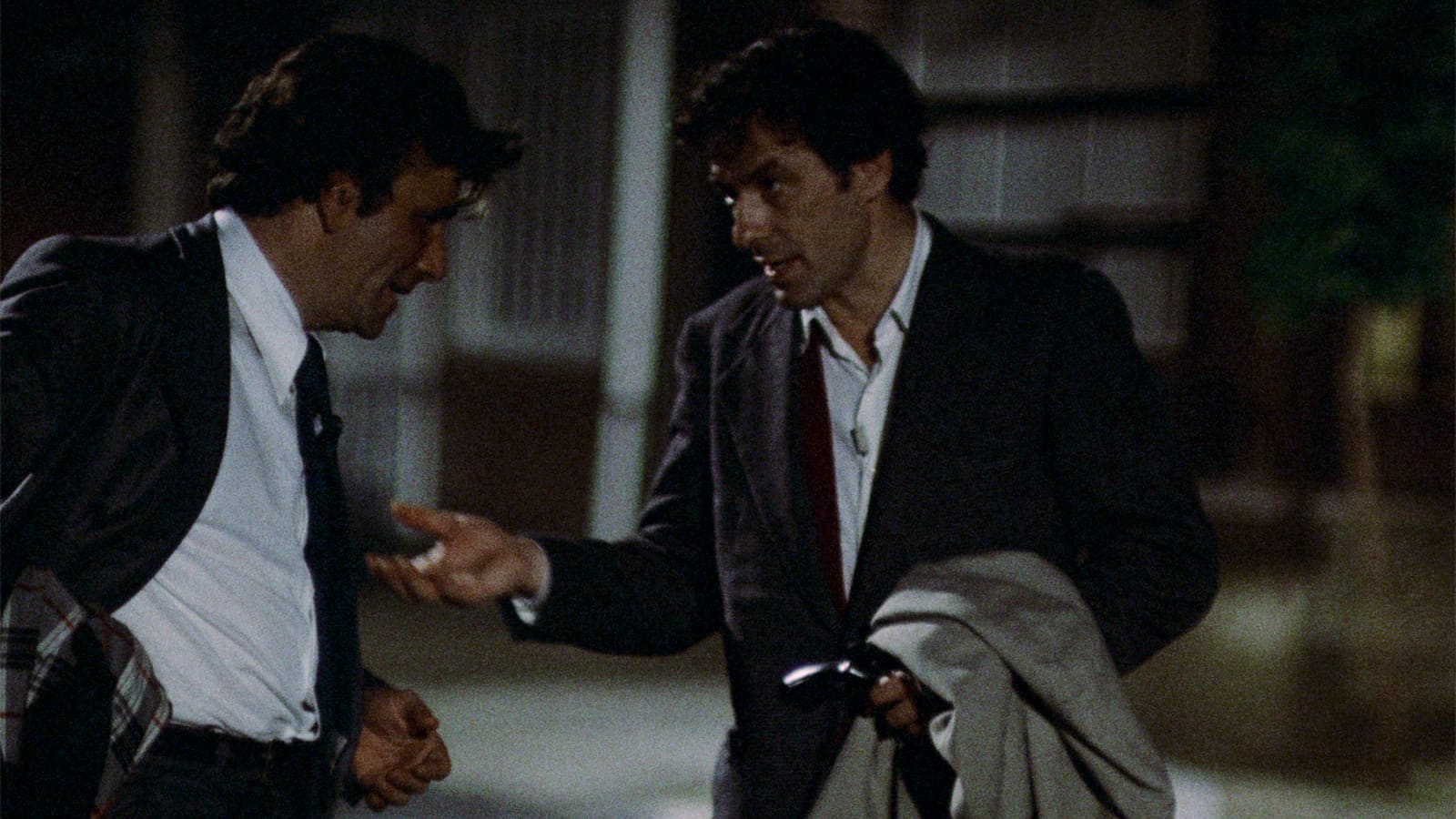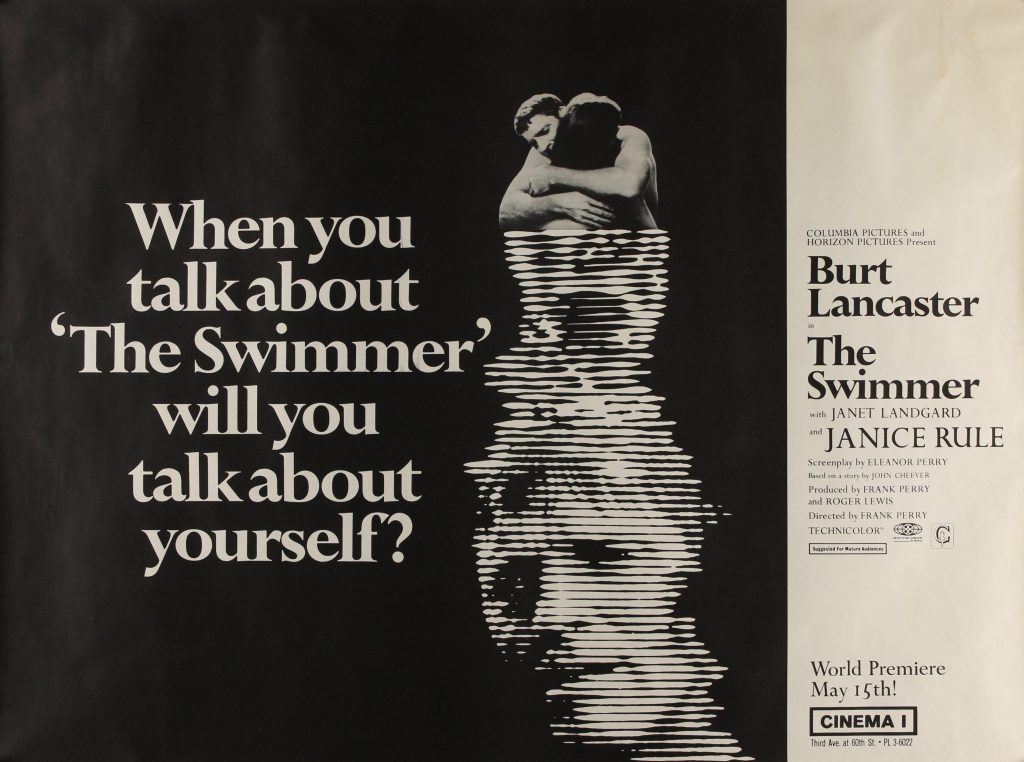“I’ve learned that people will forget what you said, people will forget what you did, but people will never forget how you made them feel.” – Maya Angelou
Small-time thug Nicky (John Cassavetes) is in a real pickle. He stole a grand and ran, and his boss is a powerful and unsavory man who placed a contract on his life for the betrayal. That’s really all the background information that’s needed, because the story of Mikey and Nicky is focused on Nicky’s unfortunate night with his friend Mikey (Peter Falk), whom he calls for the umpteenth time to get him out of trouble. Ever-reliable, Mikey shows up and attempts to help his longtime comrade out of another jam. Over the course of one impulse, manic night, the pair confront each other and themselves with accounts of double-crossing, regret, and a reappraisal of their companionship in the face of doom. Utilizing the gangster picture template and leaning fully into the natural chemistry between Falk and Cassavetes, Elaine May’s 1976 masterpiece is fresh on the Criterion Channel streaming service. It crafts a meditation on the strength of the blood covenant between two wise guys, and ponders the ever-creeping annihilation that comes for us all.
Mikey and Nicky arrives in the middle of the 1970s, an unsentimental era in filmmaking: the era of Klute, The Parallax View, and Chinatown, where, like Whose Line is it Anyway?, the rules are made up and the points don’t matter. The good guys swim in relative morality, and the bad guys get away with bad things. The old narrative standards of rationalization, linear planning, and olive branch extensions across the aisle are now as useless to a Nixon constituency as they are to Harry Caul in Coppola’s The Conversation (1974). Instead, American cinema turns more abstract: in her book Reeling, Pauline Kael observes that New Hollywood movies share “a new open-minded interest in examining American experience.” Writer/director May crafts such an examination, distilling a doomed male friendship into an essence of toxic masculinity.
To that end, there’s something to be said for a woman-helmed film that casts an inquisitive eye towards entitled men who are rarely told “no,” and the women who are left in their boozy wake. The grit and violence is not glorified; there’s no Goodfellas sense that “As far back as I can remember, I always wanted to be a gangster.” Rather, Mikey and Nicky are war-weary, at times tired of their own crap. They are as vain as the mob wives portrayed in the genre pictures of yesteryear, while the actual wives and molls of the story are left to make the best out of the cards they are dealt. Despite both friends trying to fool around with a girl who is (allegedly, according to Nicky) known to be cozy with many, both men have wives and children. Mikey’s wife Annie (Rose Arrick) and Nicky’s wife Jan (Joyce Van Patten) aren’t on screen for very long, but May gives them the most bang for their buck by constructing from their screen time a harsh testimonial on men who freely indulge in their worst elements, collateral damage be damned. The usual argument goes that any film that depicts the women characters as battered and defeated can’t possibly be feminist, but that doesn’t hold water here. It’s not the anatomy of the director that makes a feminist film, or even explicit femme-centric content; in her interrogation of the most extreme trappings of masculinity, Elaine May aligns the themes of her story with feminism’s fascination with the social norms that end up hurting everyone.

The first image on screen in Mikey and Nicky is a locked door, a barrier sheltering Nicky from the outside world. His first words: “Mikey? I’m in trouble.” The camera’s observation of Nicky is handheld, frantic, with quick cuts; the paranoia seeps out of the frame. Within minutes, Nicky arrives to help. He’s filmed with more discipline, level with long takes. He practically has to break the door down to get inside, because his old chum is all but petrified with fear, convinced that his murderer is nearby, waiting for a clear shot. Mikey is paternal; he has to engage with his fellow mobster as a parent humors a child. To get inside the flophouse room Nicky is holed up in, he reassures him that everything is okay. He knows Nicky gets ulcers, and he has to eat the ulcer pills in front of Nicky to prove that everything is on the up and up. To further help, Mikey makes a store run to grab milk, but before he does, he spends a good two minutes reassuring his friend that he’ll be back soon. This is the tenor set for the night, which unfolds from nearly midnight to sunup, as the pair of desperate men evade an assassin (Ned Beatty).
Falk and Cassavetes are at the top of their game here. In his book Cassavetes on Cassavetes, film scholar Ray Carney writes of the actor: “He said his goal was to bring ’realism’ back to acting, and that the highest compliment that could possibly be paid to one of his actors was to say that he or she didn’t appear to be ’acting,’ but simply ’living’ his character.” Indeed, much of the film seems like a fly-on-the-wall observation of two men, as though the cameras just happened to be on. Cassavetes throws his entire body into a sustained oscillation between bravado and cowardice, an aggressive powerhouse performance from a vocal opponent of the Method. Nicky’s mood turns on a dime, an agent of chaos only tethered by Mikey’s grounded tolerance. The rapport between the two leads is largely improvised from scene to scene, leading to moments of intimate mirth and frenzied rage that can only be shared between true friends.

Nicky fears and runs from the hitman (and the death he brings) until, in one powerhouse scene, he randomly decides to cozy up to it and visit his mother’s grave site. With an exasperated Mikey in tow, he finds it, and begins joking and laughing, nearly whistling past a graveyard. When confronted with death, he’s useless and overcome with absurdity and laughter. In fact, Nicky spends most of the movie posturing that nothing can hurt him. He is engaged in a danse macabre, fearfully and mockingly aware of his own mortality.
The overriding motif is minutiae exacerbating an already bad night, like the plot of Good Time. The rules and regulations of a social world outside of Mikey and Nicky’s lowlife microcosm are imposed upon these men, who are just trying to get through to dawn. Mikey tries to get milk for Nicky’s ulcer so he’ll calm down and is met with a café proprietor (Peter R. Scoppa) who refuses to sell him milk without coffee. Later, Nicky gets into an argument with a bus driver who adheres strictly to company policy, which deems that passengers must exit the back of the bus instead of the front doors that Nicky is standing next to. The hitman Kinney is just as beholden to the cosmic absurdity of rules and regulations; he’s forced to buy a ticket to a movie, and sit through it while looking for his target. Ned Beatty’s exasperation at the obstacles in the path of his assigned kill would fit right in among the cadre of miscreants in any contemporary Coen Brothers movie. In Mikey and Nicky, the result is as much of a macabre stand-up act about friendship and death as McDonagh’s In Bruges (2008) and Ashby’s Harold and Maude (1971), albeit less sentimental.
Nicky’s odyssey of survival is a tour of his own sins; after they finally tire of his manipulation and entitlement, every person he turns to for help regales him of every slight he’s committed against them. “I know all the things that you say about me.” “Don’t be sorry, just get out.” “You made a joke out of me.” The latter truth bomb is uttered by Mikey himself, whose arc moves from defense and pity to stoic acceptance that some things—like mortality—can’t be helped. By the time Nicky destroys Mikey’s watch (given to him by his late father) and laughs about it, Mikey resigns himself to simply letting the relationship die, adopting Russell Bufalino’s attitude in elegiac 2019 gangster film The Irishman: “It’s what it is.” The final moments of the film are a mirror image of the beginning: Nicky is banging on a door, begging to be let in as death himself closes in with a pistol and an unstoppable indifference to all that Nicky’s done and wants to do.
When the conversation turns to great gangster films, Mikey and Nicky deserves a shout out. When the conversation is about death and its power to nullify lifelong bonds and heartfelt histories, what better sandbox to play in than that of death-dealing mobsters? In 106 minutes, over the course of eight narrative hours, Nicky lives as Sinatra croons, “Riding high in April, shot down in May.” That’s life. When it’s all said and done and the credits roll, all Nicky is left with is a closed door and the way he made people feel.
“Mikey and Nicky” is currently streaming on the Criterion Channel. It’s also available on DVD and Blu-ray from The Criterion Collection.



